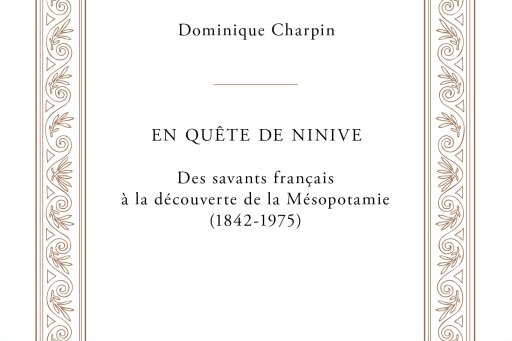Harold Elliot Varmus est un médecin oncologue américain, lauréat du prix Nobel de médecine en 1989 pour la découverte de l’origine cellulaire des oncogènes rétroviraux. Ancien professeur à l’université de Californie à San Francisco, il a également été directeur des National Institutes of Health.
Du 4 au 25 mars 2024, il donnera au Collège de France une série de quatre conférences, en anglais, intitulée « Reflections on the Scientific Enterprise ». Découvrez ce cycle à venir dans une interview réalisée à cette occasion.
You were born during WWII, and your academic career began during the Vietnam War. How did your life influence your curiosity concerning the links between society and science?
Harold Elliot Varmus : As I will describe in my first lecture, the American war in Vietnam had a direct influence on my decision to become a scientist, because a requirement for doctors to serve the government during the war led to my first significant laboratory work at the US National Institutes of Health and a shift in my career plans. The experience introduced me to the interdependence of science and society.
Could you tell us about the research that won you the Nobel Prize for Medicine in 1989?
Very briefly, we showed that a cancer-causing gene in a chicken virus was derived from a normal gene found in the chromosomes of chickens and all other animal species. This discovery (in the mid-1970s) changed the way that everyone now thinks about the origins of cancer, and –with the help of many others in the scientific enterprise– it eventually led to dramatic improvements in cancer treatment. That early work and some of its consequences will be discussed extensively in my second lecture.
Was it natural for you to accept the directorship of the National Institutes of Health after your Nobel Prize? Has it been difficult to give up full-time research?
I wouldn’t say that it was a “natural” outcome. But the Nobel Prize probably made it possible for me to be asked to lead a large government agency, since I lacked administrative experience and was little known outside of my narrow scientific fields before that. Fortunately, I didn’t have to give up research to direct the NIH (or other institutions, later). I did have to reduce the scope of my research, but I have always felt that was a reasonable trade-off for a big opportunity: to try to improve how part of the “enterprise” works.
Your lectures at the Collège de France will focus on the scientific enterprise. Can you tell us more about them?
The lectures all refer to the “scientific enterprise” as a social construct within which most scientific work occurs. But each lecture will focus on one of four important activities that are critical elements of the enterprise: choosing a career in science; performing experiments that ultimately change how the world works; disseminating scientific findings by publication and other methods; and making the opportunities to do science and the benefits of science accessible in all parts of the world.
Would you say today’s society now has difficulties with science? What is your opinion on the future of confidence between the public and scientists?
Science and scientists are well respected in general, but skepticism about them has grown in recent years, especially during the Covid pandemic and especially in the US. This is so despite notable achievements, most obviously the rapid development of highly effective vaccines against coronaviruses.
The growth of anti-science views is not well understood, but I believe that talking about how science works and what it does can help people understand the benefits of science, improving both the conduct and support of scientific work in the long run. Science provides the best tools to reduce the threats that human societies face from many causes –including climate change, diseases, water and food shortages, inadequate supplies of “clean” energy– so we need to maintain its strengths.
Propos recueillis par Aurèle Méthivier









